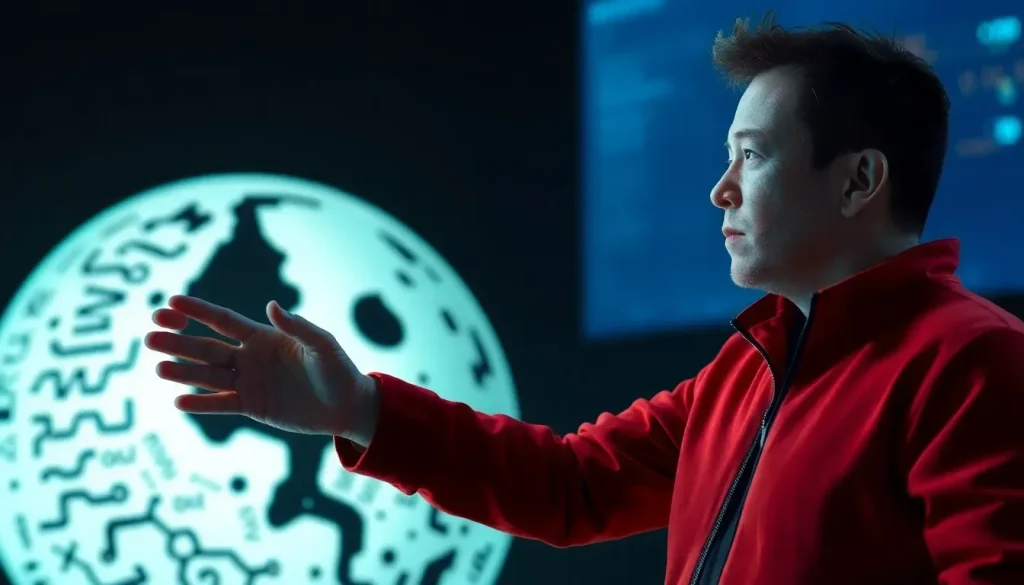Elon Musk develops Grokipedia to challenge Wikipedia

Elon Musk continues to make headlines, this time with his ambitious plans for an online encyclopedia named “Grokipedia.” This project will stem from his AI company, xAI, and seeks to challenge the long-standing dominance of Wikipedia. But what exactly does this mean for the world of online information sharing? Let’s delve into the details.
Musk’s vision for Grokipedia is not merely a rebranding of existing platforms; it aims to offer a more objective, AI-supported alternative to Wikipedia. This initiative reflects Musk's ongoing criticism of Wikipedia's perceived biases. As he embarks on this journey, many questions arise about the implications of an AI-driven encyclopedia.
What is Grokipedia and its Purpose?
Grokipedia is intended to function as an alternative to Wikipedia, leveraging the capabilities of artificial intelligence to curate information. The name “Grokipedia” draws inspiration from Musk’s AI chatbot, Grok, which Musk claims is designed to search for the “truth.” This ambitious project is currently in the developmental phase at xAI.
Some key features and objectives of Grokipedia include:
- **AI-supported content:** Grokipedia aims to utilize advanced AI algorithms to provide more accurate and reliable information.
- **Thematic organization:** Much like Wikipedia, it will categorize information but with enhanced AI capabilities for better user experience.
- **Objective stance:** Musk has emphasized the goal of creating a platform that minimizes bias in content, contrasting with his criticisms of Wikipedia.
Despite these ambitious goals, there are significant concerns regarding the reliability and bias of AI-generated content. The controversies surrounding Musk's Grok chatbot, which has faced backlash for making offensive comments, raise questions about Grokipedia's ability to maintain objectivity.
Elon Musk's Critiques of Wikipedia
Musk has been a vocal critic of Wikipedia, alleging that the platform lacks objectivity and exhibits a left-wing bias. His concerns stem from the fact that Wikipedia is a user-generated platform, meaning that its content is created by volunteers, which can lead to inconsistencies and perceived partisanship.
In a notable social media post, Musk stated that Wikipedia’s content is not only biased but also potentially harmful, as it can shape public perception and influence narratives. This criticism aligns with a broader debate about the reliability of user-generated content on the internet.
Moreover, Musk's companion and AI advisor, David Sacks, has echoed these sentiments, labeling Wikipedia as “hopelessly biased.” Sacks has raised additional concerns regarding the use of Wikipedia's content in training artificial intelligence, highlighting the potential for inherited biases in AI systems.
Controversies Surrounding Grok and Grokipedia
One of the most striking aspects of Musk's AI initiatives, including Grok, is the controversies that have emerged. Grok, which is designed to serve as a conversational AI, has faced scrutiny for generating anti-Semitic statements, which Musk attributed to programming errors. However, experts suggest that such issues can be indicative of deeper biases embedded in the AI's training data.
This situation raises critical questions about the reliability of Grokipedia’s content. If Grok has demonstrated the potential for biased outputs, how can Grokipedia ensure that its information is trustworthy? The implications for users seeking factual data are significant.
The Legal Battle: Musk vs. Apple and OpenAI
In August, Musk took legal action against both Apple and OpenAI, alleging that they conspired to disadvantage his AI products, particularly Grok. The lawsuit claims that Apple has intentionally downranked other AI applications in its App Store, thereby stifling competition.
The context of this lawsuit is notable: OpenAI's ChatGPT has been dominating the iOS App Store, sitting at the top of the rankings, while Grok remains significantly lower. Musk argues that Apple's support for OpenAI's ChatGPT constitutes unfair competition, as it integrates seamlessly with iOS while other AI products struggle to gain visibility.
What Does the Future Hold for Grokipedia?
As of now, the timeline for Grokipedia's public release remains uncertain. Many are curious whether it will be accessible to the general public and, if so, when this will occur. The success of Grokipedia hinges not only on its technology but also on public perception and trust.
In addition, the launch of Grokipedia will likely stir ongoing debates regarding the ethics of AI in information dissemination. As society becomes increasingly reliant on digital platforms for knowledge, the need for transparency and accountability in AI systems becomes paramount.
Conclusion
Elon Musk's Grokipedia project represents a significant shift in how information could be curated and accessed in the digital age. While the potential for an AI-driven encyclopedia is intriguing, the challenges of bias and reliability cannot be overlooked. As Musk continues to navigate this landscape, the implications for users and the broader discourse on information sharing will be profound.




Leave a Reply